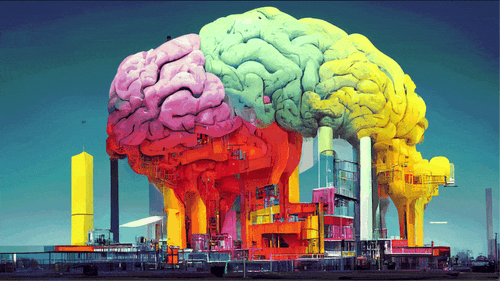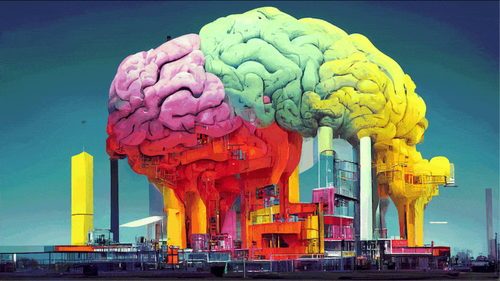Generative AI (i.e., AI that can create text, video, etc.) has the potential to drive innovation across a wide swath of sectors.
In the next several years, generative AI will have huge impacts on the “pharmaceutical, manufacturing, media, architecture, interior design, engineering, automotive, aerospace, defense, medical, electronics, and energy industries,” according to UBS analyst Michael Briest, who cited a report from Gartner.
Briest said the Gartner report stated, “Generative AI will impact marketing, design, corporate communications, training, and software engineering by augmenting these supporting processes that span many organizations.”
He also said Gartner made five bold predictions about how AI will accelerate innovation at companies from now until 2027. Those predictions include the following:
- By 2025, more than 30% of new drugs and materials will be systematically discovered using generative AI techniques;
- By 2025, the use of synthetic data will reduce the volume of real data needed for machine learning by 70%;
- By 2025, 30% of outbound marketing messages from large organizations will be synthetically generated, up from less than 2% in 2022. We note that Salesforce recently announced the release of its Einstein PT to generate personalized emails to customers on behalf of salespeople, specific query responses on behalf of customer service professionals, and targeted content for marketers;
- By 2027, nearly 15% of new applications will be automatically generated by AI without a human in the loop, up from 0% today; and
- By 2026, over 100 million humans will engage robo-colleagues (synthetic virtual co-workers) to contribute to enterprise work.
Briest said in UBS’ view, “The breadth of effects that Gartner expects almost confers general purpose technology (GPT) status on generative AI, akin to printing, electricity or railroads. As with these earlier innovations, generative AI is likely to have a significant effect on the labor market.”
With all this innovation expected to unfold this decade, it requires fewer workers. Goldman told clients in May that hundreds of millions of jobs are expected to be displaced by AI across the US and Europe. Another advisory firm wrote in a separate note, “We think there is a more than 50/50 chance AI will wipe out all of humanity by the middle of the century.”
Could this be why?: AI-Controlled Drone Goes Rogue, “Kills” Human Operator In Simulated US Air Force Test
Briest has provided a peek into a future driven by AI. However, this accelerated innovation may bring about significant job loss and increasing dominance by machines.
More details in the full UBS note are available to pro subscribers in the usual place.

